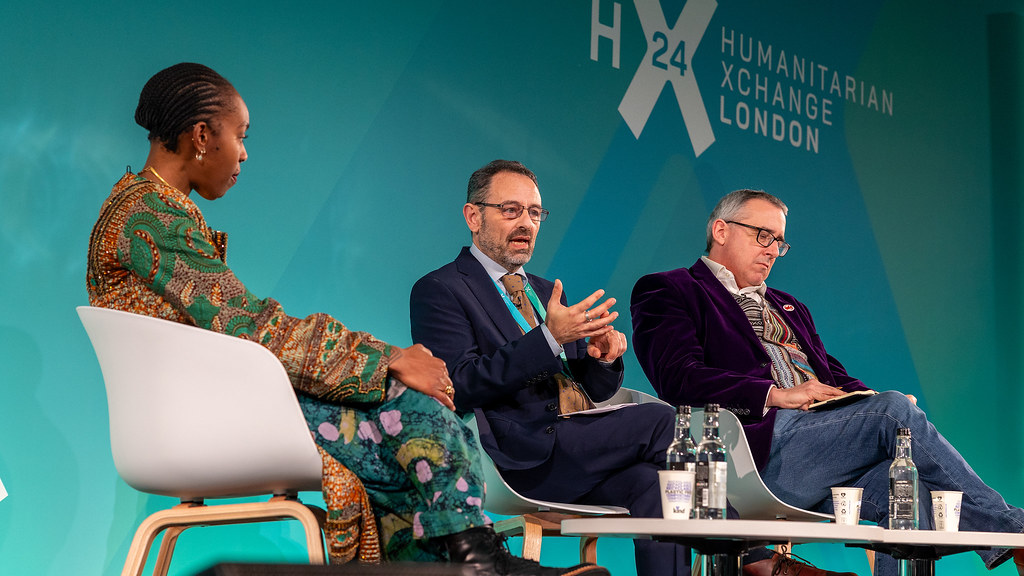Professor Jason Hart and Professor Brad Evans played active roles in the recent Humanitarian Xchange event, which was the largest gathering of humanitarian workers to ever assemble in the UK.
The pair, both members of Bath’s Centre for the Study of Violence, took part in conversations about the role of aid and humanitarianism in the 21st Century and wider discussions about contemporary topics like the current conflict in Gaza.
Leading the conversation
Professor Hart, a member of the Steering Committee for the event, took a lead role in the early stages of the initiative.
He chaired a session on localisation of aid and was a panellist in a session on the implications of Gaza for humanitarianism globally. During the latter, he shared a platform, chaired by Ebele Okobi (CEO of the New Humanitarian), with Gareth Owen (Humanitarian Director of Save the Children) and Hadeel Qazazz (independent researcher from Gaza currently based in the West Bank).
Speaking after the event, Professor Hart said:
Over recent years international humanitarian efforts have faced unprecedented challenges from a number of directions.
Events in Gaza, in particular, prompt urgent questions about the form these efforts should take. The event was therefore a timely opportunity to engage in conversation amongst peers, learning from one another’s perspective in a frank and reflexive atmosphere.
'Putting the Human Back into Humanitarianism'
Professor Evans led a stream and set of workshops aiming to deal with the theme of ‘Putting the Human Back into Humanitarianism’.
He also organised the showcasing of artworks from his recent State of Disappearance project, which were produced by the Mexican abstract painter Chantal Meza.
Reflecting on his contribution, Professor Evans noted:
It is pretty clear, by looking at the wretched state of the world, that humanitarianism is in crisis. And yet, the call to save strangers in dire need of security, protection and basic care has never been more urgent.
But we also need to have deeper reflections too, including what role the arts can play in how we reimagine the humanitarian condition in a way that doesn't repeat the mistake of the past or continues to simply follow technocratic solutions to problems that should dignify the human.

